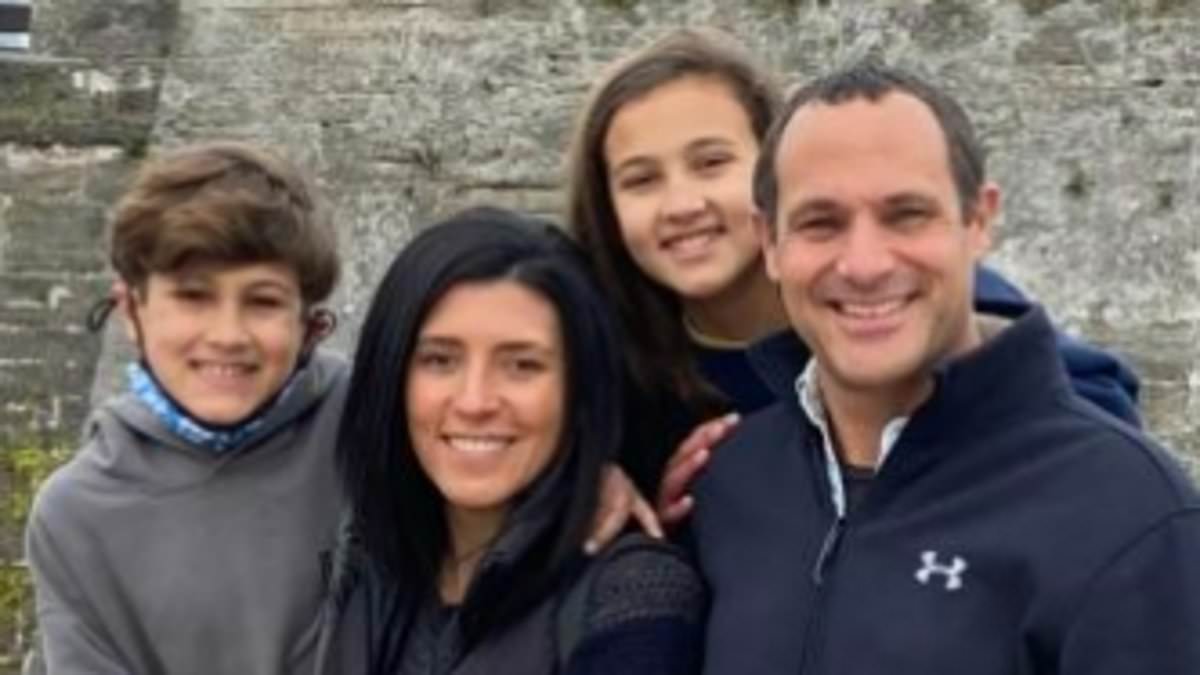A family that went bankrupt following soaring inflation and an increase in the cost of living decided to take a chance by moving to a state offering newcomers a cash incentive to settle down there.
Ben Isenberg, together with his wife and two children moved from Baltimore, Maryland, traveled 300 miles west to the Mountain State of West Virginia.
They were lured by the premise of a $10,000 cash bonus with the additional offer of an extra $2,000 if the family stayed put for at least two years.
Despite the lucrative offer, it was West Virginia’s slower pace of life overall, coupled with the state’s cheaper cost of living, that made them leap at the chance.
The Isenbergs took up the ‘inflation relocation’ offer two years ago, after Ben’s business suddenly hit upon hard times during the pandemic.
‘We lost half our business, had to let staff go. We’re laying in bed looking at this beautiful house going, we’re underwater. I heard about this and thought, I’ll apply for the grant,’ he told Today.
‘But now, when I go to the grocery store, my grocery bill is less overall. Our household budget is down. The movie theater is half of what it was in Maryland. It is like $6 to go to a movie. The biggest thing was all of the things we could do outside for free.’
The Ascend West Virginia program offers $12,000 to remote workers who move there.
Applicants must be 18 years or older and already have a full-time remote job to qualify for the program.
If selected, participants receive $10,000 over their first year paid in monthly installments. Then they will receive $2,000 after completing their second year in West Virginia.
Cities such as Morgantown and Greenbrier Valley are offering additional incentives that bring the total up to $20,000.
Outdoorsy perks like whitewater rafting, golf, rock climbing, horseback riding and even skiing round out the rest of the package – offered in the form of free passes that are provided upon relocation plus access to a co-working space for remote workers.
‘Ascenders’ can choose from one of several communities, ranging from the northern college town of Morgantown – near WVU – to the Greenbrier Valley in the southeastern corner of the state.
The latter is nestled in the state’s idyllic mountains – a draw for any who appreciate the majesty of Mother Nature.
Isenberg said that when he first heard about the scheme, he wondered if it was a scam.
‘I’m sure there are people that think it’s a scam. It’s not. We’re here. We’re living proof. I wouldn’t give anything up for this. It is just a great place,’ he said.
In fact, since the Isenbergs made their move to West Virginia, now their parents have also decided to join them in the town of Lewisburg.
The family of four needed an annual income of about $109,142 to live in the Baltimore area, according to the Economic Policy Institute’s Family Budget Calculator.
By comparison, Greenbrier County, West Virginia, where the Isenbergs now live requires an annual total of $97,562 – or about $8,100 per month.
Housing costs in Baltimore are more than double that of Greenbrier County with an average of $1,548 a month compared to just $761.
Food is also far more expensive in Maryland, costing an average of $1,110 per month, compared to $890 in rural West Virginia.
Brad D. Smith founded the Ascend program. He is also the current president of Marshall University.
Once the CEO of software company Intuit, Smith started the program three years ago – leaving behind a successful career in Silicon Valley.
‘You couldn’t ask for a more small-town charm with amazing music and vibrancy and an incredible recreation scene,’ Smith said.
So far, 159 families – a total of 299 people – have made the move. The goal is to bring in 1,000 remote workers and families to the Mountain State over the next five years.
Even local residents are said to be happy about the outsiders moving in.
‘To be honest, they’re happy because their property values have escalated,’ said West Virginia Governor Jim Justice.
‘They know for us to have more and more opportunity in West Virginia, you have got to have more people. You have got to have a bigger tax base. That’s all there is to it.
‘They might be looking for someplace more affordable that they could have more space. Beyond that, they’re looking for community connections.’
